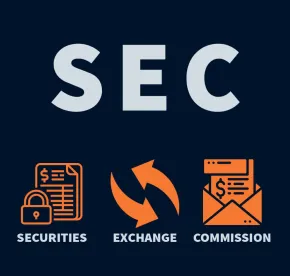The Division of Examinations (the “Division”) of the U.S. Securities and Exchange Commission (the “SEC”) announced its 2023 examination priorities (the “Examination Priorities”) on February 7, 2023.1 This annual publication is highly anticipated by private fund managers as it provides an insight into the mindset of the industry’s primary regulator on such a key aspect of its oversight as the main focus areas for its examination program. Traditionally, changes in the examination priorities from year to year are rather limited. Yet, if previously industry participants had to carefully review and compare the annual announcements to discern such changes, in this year’s publication, the Division expressly identified its new priorities perhaps saving some time and effort for the curious observers. It would probably then be only fitting that we begin our review of the Examination Priorities with the SEC’s new areas of focus. We will then cover the more traditional, historical priorities that continue to remain on the SEC’s radar for the coming year.
New Focus Areas of the Examination Priorities
Compliance with the New Marketing Rule
The Division announced that it will focus on the recently amended Rule 206(4)-1, commonly referred to as the “Marketing Rule”. The SEC’s heightened focus on the Marketing Rule likely comes as no surprise to the managers closely following the commission – the Division put the entire industry on notice with its recent Risk Alert2 announcing examinations focusing on the new Marketing Rule. In this regard, the staff will scrutinize the marketing materials of registered investment advisers (“RIAs”) to assess whether such RIAs have adopted and implemented written policies and procedures that are reasonably designed to prevent violations of the Marketing Rule. This would appear to be mostly driven by Rule 206(4)-7 (frequently referred to as the “Compliance Rule”) rather than by the Marketing Rule per se.
As for the substantive requirements of the Marketing Rule, the Division will review and evaluate the requirements that apply to performance advertising, testimonials, endorsements, and third-party ratings, as well as to managers’ reasonable basis for believing that they will be able to substantiate material statements of fact contained in their advertisements.
By the staff’s own admission, the new Marketing Rule represents “a significant change” to one of the core examination review areas for RIAs.3 In our experience, this sentiment is widely shared by industry participants not only because of the substantive changes that came along with the Marketing Rule, but also due to a lack of SEC guidance on some important aspects of the new rule. For instance, the commission recently published an FAQ4 addressing one of the most debated questions in the wake of the Marketing Rule’s adoption: whether net performance reporting requirement applies to individual portfolio companies. The SEC answered with a “yes” (which, in and of itself, represents a major deviation from years of established industry practices), yet it did not provide much direction on how such net performance should be calculated to comply with the rule.
In light of this, the Division’s inclusion of the Marketing Rule in the Examination Priorities — and the fact that it is a subject of the SEC’s examination initiative — is welcome news to industry participants, as it is customary for the staff to issue findings and observations after conducting examination sweeps. Hopefully, this much-needed guidance is forthcoming through the findings and observations that the SEC is likely to issue after completion of its first wave of examinations focused on the Marketing Rule.
Private Fund Managers
The second new area of focus identified by the Division includes various compliance matters that affect private fund managers. Arguably, private fund managers have been under the SEC’s heightened scrutiny for some time now, and the Examination Priorities are just a continuation of that general trend. Some of the staff’s concerns that affect all private fund managers include:
-
calculation and allocation of fees and expenses, including the calculation of post-commitment period management fees and the impact of valuation practices at private equity funds;
-
policies and practices regarding the use of alternative data and compliance with the Investment Advisers Act requirement to adopt policies and procedures around material non-public information;5 and
-
compliance with Rule 206(4)-2 (the “Custody Rule”),6 including issues such as timely delivery of audited financials and selection of permissible auditors.
Also, private funds with the following specific risk characteristics will be under additional scrutiny from the Division:
-
highly-leveraged private funds;
-
private funds managed side-by-side with business development companies;
-
private equity funds using affiliated companies and advisory personnel to provide services to the funds and underlying portfolio companies;
-
private funds that hold certain hard-to-value investments, such as crypto assets and real estate-connected investments;
-
private funds investing in or sponsoring Special Purpose Acquisition Companies (SPACs); and
-
private funds involved in adviser-led restructurings, including stapled secondary transactions and continuation funds.
Continuing Focus Areas of the Examination Priorities
The SEC has taken note of the growing investor demand for advisory services that incorporate environmental, social, and governance (“ESG”) matters and the commensurate increase in offerings of investment advisory services addressing this demand. The staff will continue to assess ESG-related fund offerings and advisory services, specifically with regard to the accuracy and implementation of any claimed ESG-conscious practices and goals – in other words, the Division is concerned with whether managers are engaging in a practice known in the industry as “greenwashing”.7
Cybersecurity, a perennial area of focus for the SEC for almost a decade now, has made the list this year as well. The commission currently has an outstanding rule proposal on cybersecurity8 which is expected to be finalized in April of this year9. In this area, the Division will assess managers’ policies and procedures, governance practices, and responses to cyber-related incidents to determine whether they are adequately designed to protect investor information, records, and assets, and to prevent interruptions or crashes to critical services.
Finally, recent disruptions caused by financial distress among crypto asset market participants ensured that the Division will also continue to examine10 RIAs focusing on the offer, sale, or recommendation of and trading in crypto or crypto-related assets. More specifically, the SEC will evaluate whether managers involved with crypto or crypto-related assets meet the applicable standard of care when making recommendations and referrals, and when providing investment advice. The staff will also review whether registrants routinely review and update their compliance, disclosure, and risk management practices.
*****
While this article outlines a number of prominent areas of examination expected by the Division in the coming year, the above-analyzed areas of focus are not exhaustive. Private fund managers should be mindful of the current industry environment marked by heightened regulatory activity and remain diligent in keeping up with guidance in developing areas to ensure ongoing compliance with SEC’s rules and regulations.
FOOTNOTES
1 Sec. & Exchg. Comm’n Div. of Examinations, 2023 Examination Priorities (Feb. 7, 2023), https://www.sec.gov/files/2023-exam-priorities.pdf.
2 See Sec. & Exchg. Comm’n Div. of Examinations, Risk Alert: Examinations Focused on the New Investment Adviser Marketing Rule (Sep. 19, 2022), https://www.sec.gov/files/exams-risk-alert-marketing-rule.pdf.
3 Sec. & Exchg. Comm’n Div. of Examinations, 2023 Examination Priorities 9 (Feb. 7, 2023), https://www.sec.gov/files/2023-exam-priorities.pdf.
4 See Sec. & Exchg. Comm’n, Marketing Compliance Frequently Asked Questions (Jan. 11, 2023), https://www.sec.gov/investment/marketing-faq.
5 See Sec. & Exchg. Comm’n Div. of Examinations, Risk Alert: Investment Adviser MNPI Compliance Issues (Apr. 26, 2022), https://www.sec.gov/files/code-ethics-risk-alert.pdf.
6 On February 15, 2023, the SEC proposed a new Safeguarding Rule, see Safeguarding Advisory Client Assets, File No. S7-04-23 (proposed Feb. 15, 2023), https://www.sec.gov/rules/proposed/2023/ia-6240.pdf, which, if adopted, should replace the current Custody Rule. Please see Foley’s client alert on the proposal at: https://www.natlawreview.com/article/sec-proposed-safeguarding-rule.
7 See Sec. & Exchg. Comm’n Div. of Examinations, Risk Alert: The Division of Examinations’ Review of ESG Investing (Apr. 9, 2021), https://www.sec.gov/files/esg-risk-alert.pdf. See also the SEC’s new rule proposal on ESG. Enhanced Disclosures by Certain Investment Advisers and Investment Companies about Environmental, Social, and Governance Investment Practices, File No. S7-17-22, https://www.sec.gov/rules/proposed/2022/ia-6034.pdf.
8 See Cybersecurity Risk Management for Investment Advisers, Registered Investment Companies, and Business Development Companies, File No. S7-04-22, https://www.sec.gov/rules/proposed/2022/33-11028.pdf.
9 See Cybersecurity Risk Governance, https://www.reginfo.gov/public/do/eAgendaViewRule?pubId=202210&RIN=3235-AM89.
10 See Sec. & Exchg. Comm’n Div. of Examinations, Risk Alert: The Division of Examinations’ Continued Focus on Digital Asset Securities (Feb. 26, 2021), https://www.sec.gov/files/digital-assets-risk-alert.pdf.






 />i
/>i

